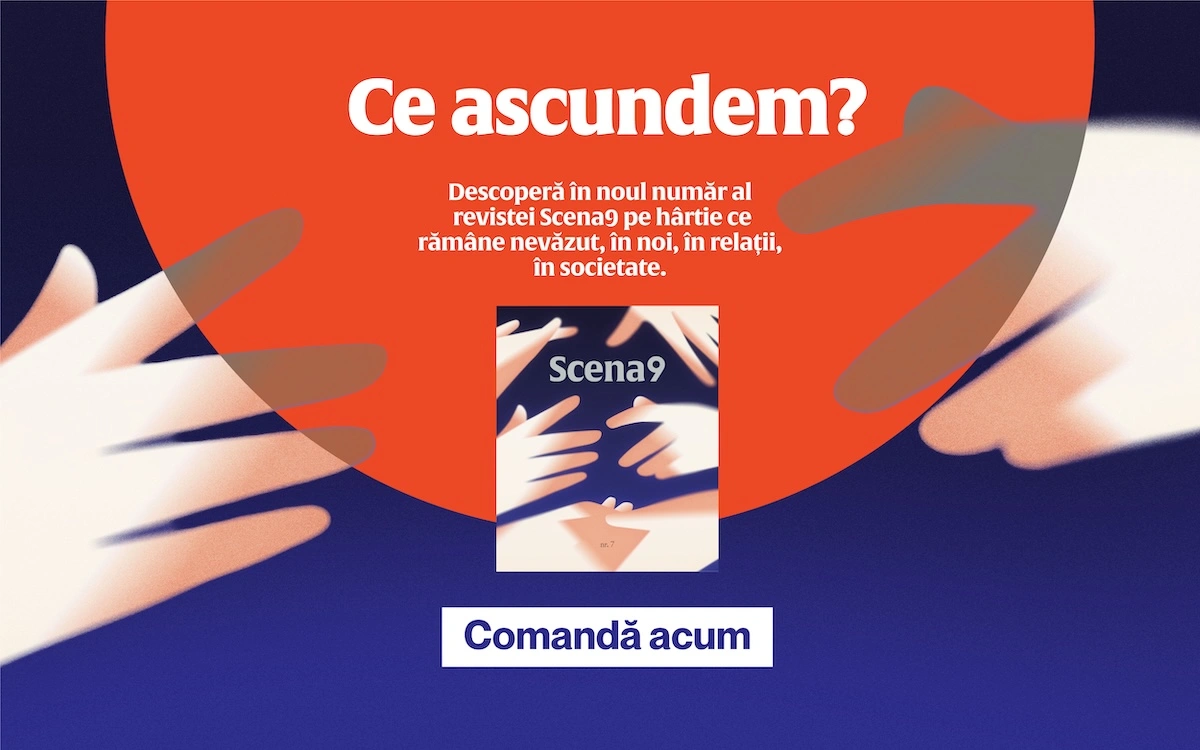In the middle of a war beauty might seem trivial. For the Ukrainian women who run Bucharest’s salons, it’s a language of resilience, work, and home.
In late July this year, right before going into the Odessa Beauty salon, located in Bucharest’s Panduri area, I was staring at the sign by their door and thinking about Odesa, the port-city in southern Ukraine. I was reminded of the sea, good food and good times. From the busy, dusty, hot street I entered an air-conditioned corner of heaven on Earth. As soon as I set foot inside the place, I was invited to sit on a velvet couch. All around me was white marble. "The owner of the salon will see you in a minute," the receptionist informed me. It’s hard to believe I’m here for work — it feels more like a vacation. Odessa Beauty Bucharest is not only a salon, but an island of Odesa in Romania.
My name is Mariia, I’m from Kyiv, Ukraine. To be honest, I’ve never been a regular at beauty salons. It was after I had to move abroad because of Russia's full-scale invasion (to Berlin, Germany) that I realized how central beauty is for Ukrainian women. When you’re far from home, there’s nothing more comforting than finding 'your people.' And it turned out that 'our people' are quite easy to spot, based on how they take care of their looks. I joined some Ukrainian group chats in Bucharest and found that half of the posts advertised beauty services. So I asked myself, what is up with Ukrainians and beauty? To try and unravel the mystery behind displaced Ukrainian beauty, I spent most of July this year speaking with Ukrainian beauticians and salon founders in Bucharest.
On July 26, the Odessa Beauty Bucharest salon celebrated one year since it opened its doors. The staff, friends and clients filled the hallway of the reception with giggles, champagne bubbles, colorful dresses, pictures, selfies and compliments. “Angle your leg a bit more towards the camera! Perfect, you’re so beautiful!” Everyone congratulated salon-owner Yuliia on her success and wished that they would all gather together many more times in the future.
Mykolaiv native Kateryna Volodymyrivna is an Odessa Beauty salon staff member. She's a cosmetologist with 37 years of experience under her belt. She’s in her 70s, very formal and professional at first, but generous in conversation — no one could tell you more about cosmetology than her. After some small talk, we get into the nitty gritty of everyday work and interaction with clients. I ask if there’s anything she doesn’t like about her job. “Well, if I told you that 100% of my clients left satisfied, I would be dishonest,” she answers with a bit of hesitation. She admits that it hurts her feelings when disagreements with clients occur. She says this mostly happens because people come in with the wrong ideas about what procedure is suitable and safe for them. For example, they see a certain type of peeling online and ask for it, without considering whether or not it’s compatible with their skin. However, sooner or later, most clients recognize that the professional was right.
Kateryna gets her smartphone and proudly reads out an excerpt from a message exchange with a client. “I think we should post this somewhere,” she laughs. “‘Dear Kateryna Volodymyrivna, my inner scepticism was shattered against the inviolable cliffs of your professionalism. From now and forever on, I am changing my opinion about biorevitalization!’”
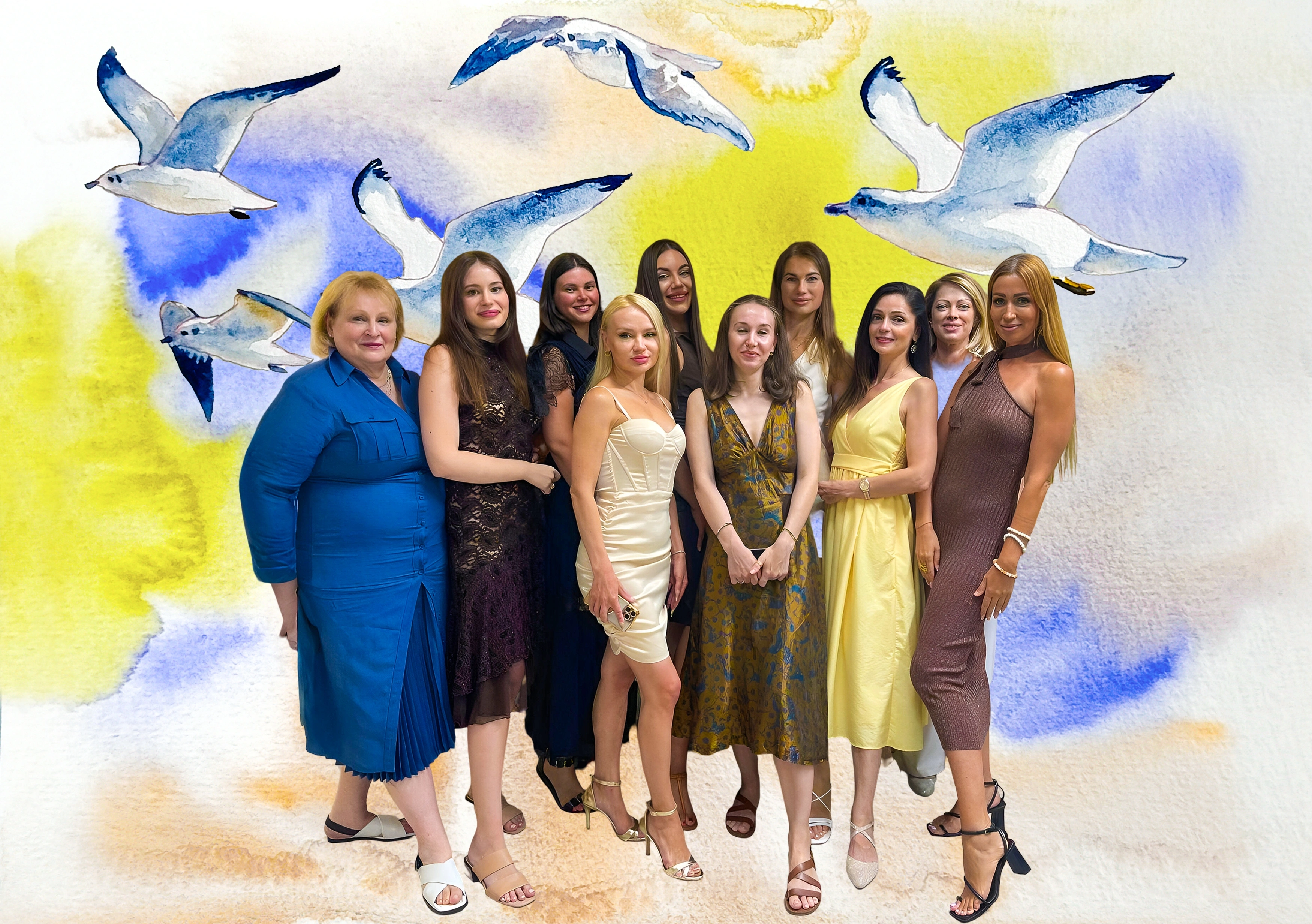
To a bystander, work in beauty might seem like just another service job that draws in migrants, but for people who had to reinvent themselves and their lives in a new country, nothing is a given. When life is full of danger and uncertainty, one’s “inviolable cliffs of professionalism” can lend an invaluable sense of confidence. While some complain that “real refugees don’t walk around with manicures,” real Ukrainian women try to find shelter, work, meaning and purpose in a new environment. Beauty certainly plays a role.
During the three and a half years of Russia's full-scale invasion of Ukraine, many women fleeing Ukraine have found work in the beauty industry. According to the UN Refugee Agency, as of September 2025 there are around 5 million Ukrainian refugees in Europe, of which roughly 188 000 are located in Romania. 45% percent of them are women. Back home in Ukraine, the already large beauty industry is still growing. According to a 2024 report by Forbes Ukraine, beauty is the second most popular sphere to open a new business, right alongside the booming drone manufacturing industry. Currently, there are nearly 69 000 registered beauty businesses in the country. Not only do these businesses refuse to stop functioning in conditions of war, but the industry as a whole also has international ambitions: for instance, G-bar, a Kyiv-born chain of beauty salons, has opened a franchise that has now reached 13 countries, spanning from the US, to Europe, to the United Arab Emirates, with 65 'beauty bars.' Ukrainian women are becoming visible in the beauty industries of the countries where they settle (as evidenced by reports from Berlin, London, and Luxembourg), thanks to the quality of their service and techniques – one such example is the increasingly popular Ukrainian manicure.
So what does it mean to practice beauty amidst the ugliness of wartime? Why did these women gravitate towards working in beauty, once they found themselves abroad? Is there a cultural difference between Ukrainians and Romanians when it comes to beauty, and how does it impact the industry?
Editor’s note: Some of the interviewees’ identities have been anonymized for safety reasons.
Work as survival
I messaged Nataliia’s salon on Instagram and immediately received a reply. Nataliia was the one running the salon’s DMs, as well as the one who greeted me at the door when we met. She also performed all the procedures for clients that day and later told me everything about the bureaucracy of opening a business in Romania. And yes, she has that exact spark in her eye you would imagine someone running such a “one woman show” to have.
The brow artist and salon owner comes from a town in Ukraine’s eastern Donetsk region called Myrnohrad. Its name means “town of peace,” but this is far from its current reality. As I write this, Myrnohrad is less than 5 km away from the frontline and is constantly shelled. Russian forces are trying to encircle the town and its surrounding area. Three and a half years ago, however, both Myrnohrad and Natalia’s life looked very different. “I felt like I had just gotten my life in order: I had opened my own salon, I was the ambassador and technologist of Elan, a successful brow-dye brand, I was teaching brow styling courses. I couldn't leave everything I started at home!”
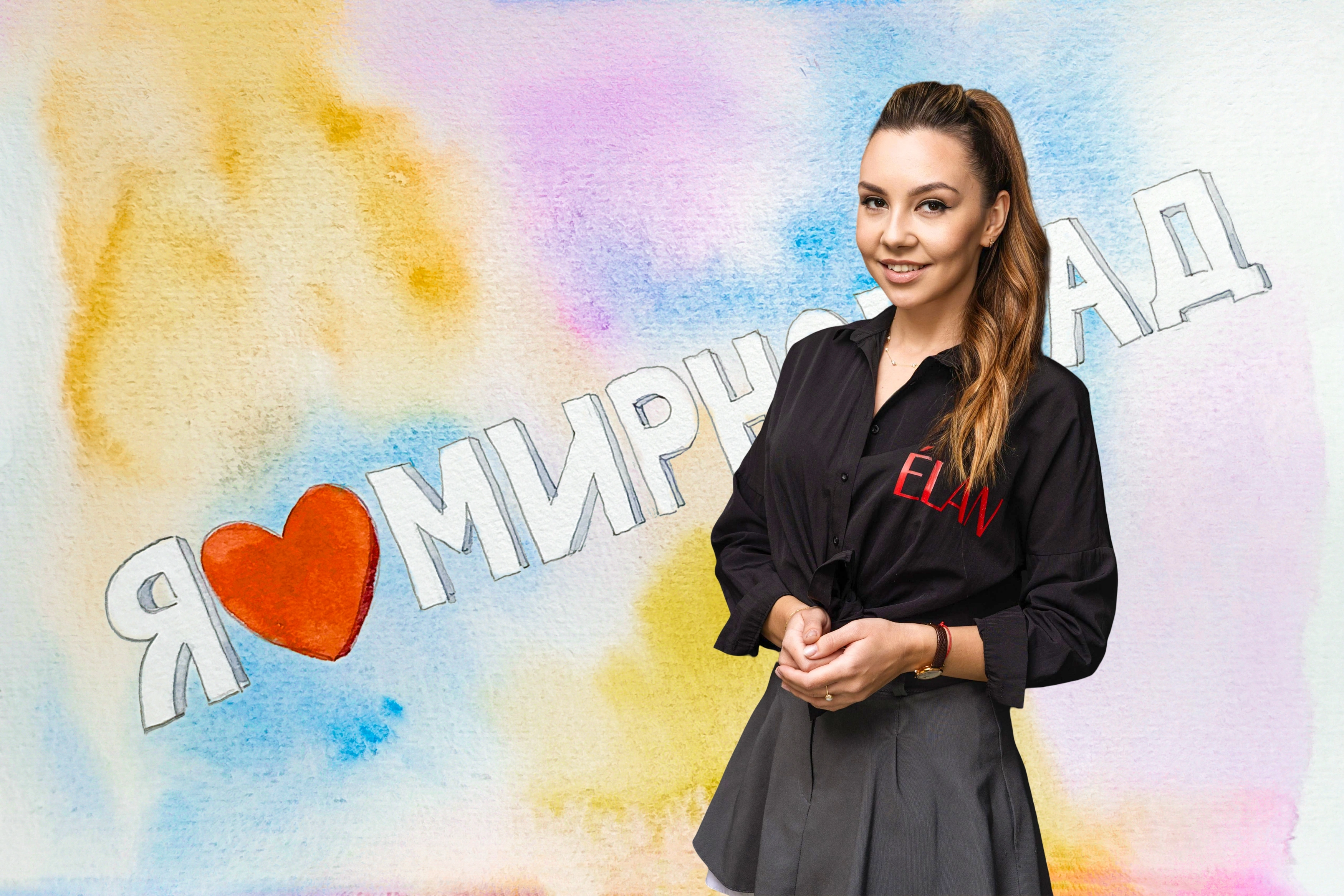
Yet after a couple of weeks of the full-scale invasion, Nataliia was exhausted from the shelling. Every missile sounded like it was flying towards her building. In the spring of 2022 she decided to flee Ukraine with her elderly parents. A few days after they arrived in Bucharest, Nataliia was working again. “My parents are my greatest motivation,” she says. She was able to get a job at a salon quite easily because the Elan network had already established a branch in Romania.
Like Nataliia, many Ukrainians chose to flee to a place where they knew they would have some sort of support system – be it relatives, job opportunities or the social benefits offered by the host country. But while securing employment is extremely important for refugees, it doesn’t magically solve all of war’s psychological fallout. Every Ukrainian refugee will tell you how thankful they are for all the help that came their way, and yet I felt that every woman I interviewed in Romania experienced being uprooted and forcefully relocated as a huge loss.
Mariia, a cosmetologist and former salon owner from Kyiv, echoes this impression. “I remember I got this job at a good salon [in Bucharest] in a convenient location, everything was going okay. And one morning I started sobbing on my way to work, for no apparent reason. I was so lonely because of the language barrier and the feeling of guilt, like I owe people something all the time”. Coming to Romania with her two daughters was Mariia’s second attempt at seeking refuge, after relocating for several months to the relatively ‘safe’ western Ukrainian region of Zakarpattya. She was looking for a place with a housing program for refugees and a vibrant beauty sphere where she could find employment. Like Nataliia, Mariia found work in Romania in less than a week upon arrival. She tells me she simply printed out a bunch of copies of her CV and dropped them off at local salons. Eventually, she got a call back.
No matter how established as experts these women were in Ukraine, they had to prove themselves anew here. Nataliia told me that back home she was used to clients coming specifically for her, they wanted an appointment with Nataliia Lohvynenko. That changed once she moved. “When I started working here I was just Natasha. And some clients were even hesitant or afraid to have an appointment with me, the new Ukrainian girl. Something crippled my soul. It hurt me so much to realize that in Ukraine I was someone and here I am no one.”
As she says this, I realize how far Nataliia has come. We sit in her very own space, SalON Project, which she opened half a year ago in Bucharest. She supports herself and her parents. She is fluent in Romanian, 90% of her clients are Romanians and local beauticians choose to attend her brow styling courses over those led by their compatriots. “I remember getting into the car to leave home three and a half years ago. I couldn’t stop crying. It was the kind of emotional pain that starts hurting you physically and drowns you. If at that point someone told me I would have all this, I probably wouldn’t have believed it.” I ask Nataliia a couple more questions about the past and the migration experience, but she goes through them quite fast — she’d much rather talk about the salon, the confidence it brings her to run it, and the things ahead of her that she’s excited to learn.
Mariia also takes pride in her self-reliance. “It’s not that I don’t have anything to do at home, but it was important for me to start working,” she explains, highlighting the psychological benefits of employment. Having a job that you know you do well is crucial for feeling in control of your life, especially when life as you know it falls apart. The experience of the war taught Mariia to be mobile and independent, so she decided not to look into opening a salon, like the one she had in Kyiv. “I don't want anything to hold me back in case we need to move again. As a beautician, I can get a job and leave as I please.” She giggles and tells me of some instances when she had to forgo her former salon-owner pride and take on the new role of employee. I imagine it must have taken her a lot of work to be able to laugh about the life she had to leave behind. Yet, being a beautician has its advantages that seem to be working out for Mariia – and it’s not just self-reliance and adaptability. Agency and the sheer magic of beauty also play a major role for her. She tells me working with clients makes her feel like a fairy.
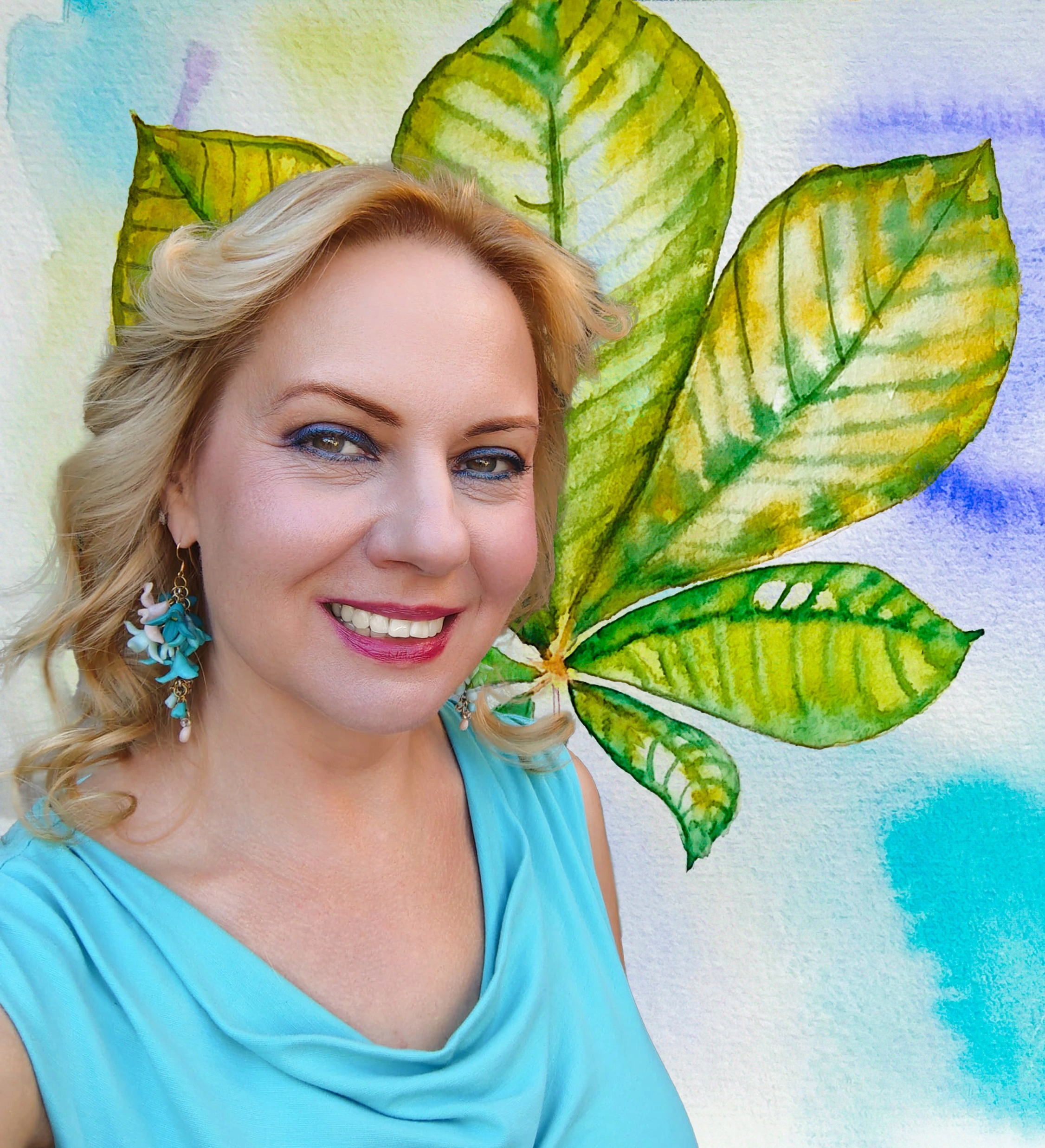
‘The Ukrainian technique’
The beauty industry definitely has its perks, but that doesn’t mean that it’s a breeze to navigate. The Romanian beauty market is quite competitive and Bucharest alone counts nearly 1 500 salons. One has to stand out in order to make bank. In highlighting something that already makes her stand out in Romania, namely her Ukrainian identity, Nataliia made a bold choice. SalON Project runs under the slogan "Romanian language, Ukrainian technique"(„Limba română, tehnică ucraineană”).
The idea of Ukrainian technique resonates with her Romanian clientele. “For example, women come to me for wedding makeup and ask for a light, natural look, like you Ukrainians do, as opposed to a thick mask-like layer that is more common in Romanian salons,” Nataliia says. Mariia, on the other hand, has had the opposite experience. A client’s reaction to what, in the professional’s view, was a decent layer of makeup was “What am I paying for if there’s barely any makeup on my face?!”. For these beauticians, adapting to the clients' various requests is part of adapting to their new country of residence. There is an expectation that Ukrainian beauticians do some things differently, but neither Ukrainians, nor Romanians hold uniform opinions on what those things are.
So what is the Ukrainian technique? Myth, marketing tool, or actual skill? Sofiia, a cosmetologist from Odessa Beauty Bucharest, is a firm proponent of the technique. “It’s a well-known fact, in Europe and in the world, that we are the best in beauty. And this is not to compare nationalities, of course. I just see it with my clients, I ask them about their previous experiences in salons and after the procedure people often say that this was their best visit to a cosmetologist!” Kateryna Volodymyrivna, the cosmetologist with nearly four decades of experience, brings it back to earth when she says that their job requires constant education and improvement. The Odessa Beauty staff regularly attend professional courses. “We simply try very hard to do our best,” she says, when I ask her about the secret to the Ukrainian technique.
Nataliia, the brow artist, has an even more specific answer. The classic way of shaping brows in Romania uses tweezers. “The Romanian way is not worse, it’s just different, it’s what they’re used to,” the expert says. “Even on salon doors here, they sometimes only write the word tweezers (pensetă) for the brow procedure. In Ukraine we would use words like modeling and colouring of the brows or stylization and architecture.” The ‘Romanian way’ also involves working on the client while they are lying down, whereas the ‘Ukrainian way’ is to have them sit up. For one thing, your face shape changes when you lie down, Nataliia explains, which results in asymmetry when you stand up after the procedure. All faces are asymmetric, but when the client sits up the brow stylist can work with that asymmetry. The reflection in the mirror shows the final result. Nataliia also draws the brow shape and discusses it with the client before beginning to work, so that they understand the future result and mistakes are minimized.
When it comes to beauty, it’s to each their own, but a good assessment of public tastes is crucial for running a business. Nataliia is quite satisfied with her strategy of promoting the Ukrainian technique and a natural look. In fact, her salon is about to expand. She will soon be joined by a Romanian cosmetologist with 8 years of experience, who found Nataliia on Instagram. “I fell in love with her work. I saw that Romanian women, well-known beauticians and salon-owners, go to her courses," Alexandra explains. "[Nataliia] is a level 3 international trainer, and in October she’s leading the Romanian team to the international championship for brow-estheticians in Turkey, so I really wanted to work with her!”
When I meet Alexandra at the SalON Project, she and Nataliia are poring over the price list for future cosmetology offers. Alexandra jumps right into the work: she assists Nataliia in receiving and reviewing a cosmetics delivery. It seems there’s no place Alexandra would rather be — and there’s no place that would rather have her. This will be Alexandra’s first work place after her maternity leave, so she took great care in picking it. “When Nataliia replied that she wants me to come work with her, I couldn’t believe it. I was only worried that she would change her mind. There are so many Ukrainian beauticians and the clients expect the Ukrainian technique, so Natalia could have easily hired a Ukrainian, but she chose me!”
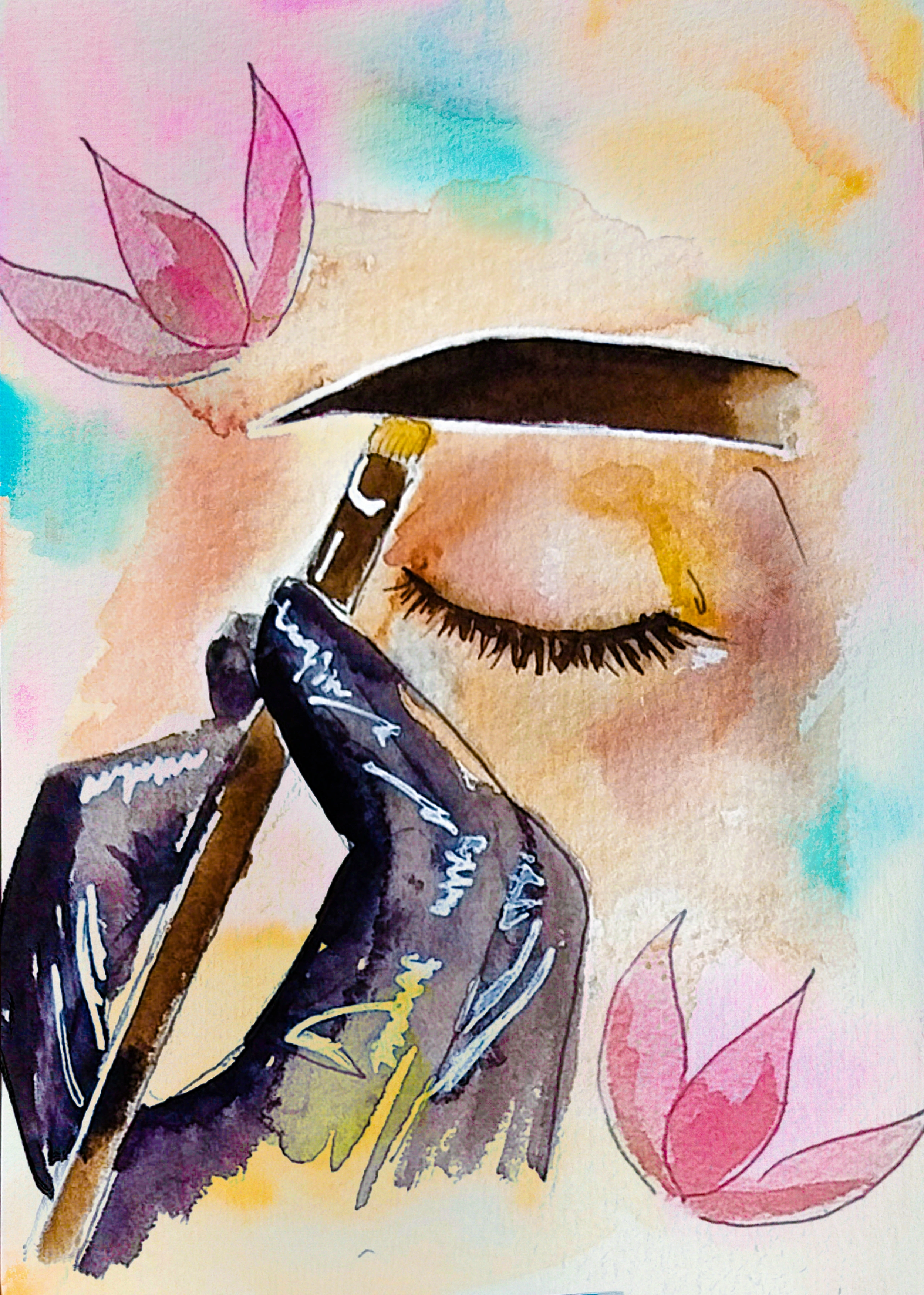
It’s actually not that easy to find a Ukrainian beautician who is both fluent in Romanian and has the Romanian certification that serves as a work permit in the industry. Nataliia had to turn away many perfectly skilled applicants for legal reasons. It took her four months and a lot of effort to get all the necessary documentation for opening a salon, so she's not taking any chances that might put her business at legal risk. Alexandra was hired on the sole condition that she takes a Ukrainian cosmetology course, in order to honor the salon’s promise of the Ukrainian technique. She appreciates the “sophisticated, elegant, clean style” and natural look that Natalia promotes. For the salon’s future cosmetology offers, they have set out to follow what they see as a developing trend in Bucharest — providing the least invasive, but most effective procedures. Alexandra confidently concludes: “I trust in me, I trust in Nataliia, and I trust in our success”.
Healing beauty
Being a migrant often feels lonely, which makes such moments of trust and connection invaluable. When I asked the beauticians about the favorite part of their work, the things that keep them going, they all circled back to their clients. Nataliia said she is very inspired by her clients’ reactions to their new looks. “This child-like joy, when they see well-done brows for the first time, or their nail polish so close to the cuticle!”
The practice of beauty is much more than just a procedure, according to Odessa Beauty cosmetologist Sofiia. “When you exit the salon, you feel as if you've just gone to a birthday party, where your soul got to relax and you also got energized! The beautician shared this feeling through their hands, their experience, and their warmth.” Kateryna Volodymyrivna adds, “We are like therapists here also, we listen to the patients. The clients come for the procedure and also to relax, to take their mind off things.” A beautician is someone you trust both with your body and with your soul. In moments of hardship, such as those brought on by Russia’s war in Ukraine, the values of trust and sincere conversation surface even more.
Perhaps to some it might seem ridiculous or shallow to tend to beauty procedures, while death and loss float in the background of your mind. Yet Tetiana, a mother of two from the largely destroyed city of Mariupol, who does keratin hair treatments out of her own home, speaks of a different experience. “In the first months when we moved here, all conversations with clients started about war and how people fled. I got asked about the siege a lot. It was horrible of course, but I wanted to talk about it. I guess there was a need in me and my clients, to get this stuff out, to talk through it”. Now she feels she put it behind her. Her account goes to show that perhaps beauty can be found at salons not only in colorful nail designs, perfect brows or glowing skin, but in the human connections they facilitate.
Beauty salons are a convenient meeting point for women to bond, but they’re only one of the spaces where connection over beauty rituals can happen. I spoke about this with Anya, who identifies as a lesbian. She says she wasn’t used to visiting beauty salons in Ukraine, and doesn’t do this in Bucharest either, as she doesn’t feel comfortable. She first relocated from her home in Luhansk to Odesa, when Russia occupied parts of Ukraine in 2014, then fled once again in 2022, this time to Romania. She can’t financially afford salon visits and feels that the supposedly Ukrainian “light, natural look” that professionals normally offer is quite heteronormative. This doesn’t align with how she wants to express herself. “Among queer people, I think, decorative beauty is more popular. I mean bright colors, funky haircuts, clothes that stand out, crazy nail designs,” says Anya, her rooster shaped earrings dangling with every word. Instead of going to a salon, she takes time at home to create her own looks, that feel comfortable to her. She does her own and her friends' nails for herself, while her flatmate cuts their hair. This way, their flat serves as a place for Ukrainian queer gatherings away from home. “I feel like I know more Ukrainians here than I did in Odesa,” Anya laughs.
While in Bucharest, I went to get a manicure myself — for research purposes, but also to appear well-kept to the stunning women I was interviewing. After a brief search in Ukrainian on social media I found someone with nice looking designs and a welcoming price list. I met Nastya* at her home, and she turned out to be in her early twenties, just like me. Nastya has recently completed nail technician training (in Ukraine, of course) and is now building her client base. She played a “baddie playlist” on her TV to set the mood and I proudly chose pink 'cat-eye' nail polish. It’s quite difficult to keep silent for an hour and a half while practically holding hands with someone; not to mention that, to each other, we present the opportunity to speak our native language in a foreign country. Nastya said she hasn't made friends in Bucharest yet, so she likes chatting with clients.
We began with February 24, 2022, and migration routes with many detours and got to what life was like before the full-scale war. Nastya is from southern Ukraine, so it was interesting for us to exchange stories from different parts of the country. We moved to discussing families and relationships. Since it still feels inappropriate to go into details with a stranger, the conversation became abstract and philosophical, which is where the therapeutic effect of beauty practices came in — it’s safer to reflect on your life or offer advice to someone you don’t know well. It would be a stretch to say that I made a friend by the end of the appointment, but I definitely felt seen and taken care of. And the quality of the manicure by a recent training graduate — impeccable. The manicure held for three weeks straight and I was a baddie.
***
When war takes everything you worked for and built away from you, you are left with the question “What is really important?”. Nataliia reflects: “Coming from the Donetsk region, I lost hope of returning quite soon. War was always close. Now, I don’t have anywhere to go back to. My house and my parents’ house are destroyed. So I had to make the decision to focus on building a new life here and providing for my parents.” Doing what she loves, opening her own beauty space and working with clients is a source and manifestation of Nataliia’s vitality. Mariia, the former Kyiv salon owner, first made sure her daughters were safe and is now doing “fairy” beautician work. Kateryna Volodymyrivna holds down the Odessa Beauty Bucharest fortress with her “inviolable cliffs of professionalism” and inspires everyone at the salon to do and be their best.
Three and a half years into Russia’s full-scale invasion of Ukraine, it’s clear that there is no returning to how things were. I feel it, and so does every Ukrainian abroad. “Home” is a ghost of the past. We want to return, we will probably always want to return, but that place doesn’t exist anymore. So we make new places that feel like home and extensions of it – for instance, beauty parlors. They’re places where the beauty of creative expression comes together with the beauty of community and life, to the point where the two become almost indistinguishable. Sofiia is convinced that beauty rituals create resilience. “Beauty to me is strength," she tells me. "The way we, Ukrainian women, take care of ourselves makes us ready to take on any challenge! And we, beauticians, can help [women] feel that strength.”
This publication was produced with support from n-ost as part of the History Unit project and funded by the Foundation Remembrance, Responsibility and Future (EVZ) and the Federal Ministry of Finance (BMF) as part of the Education Agenda on NS-Injustice.




